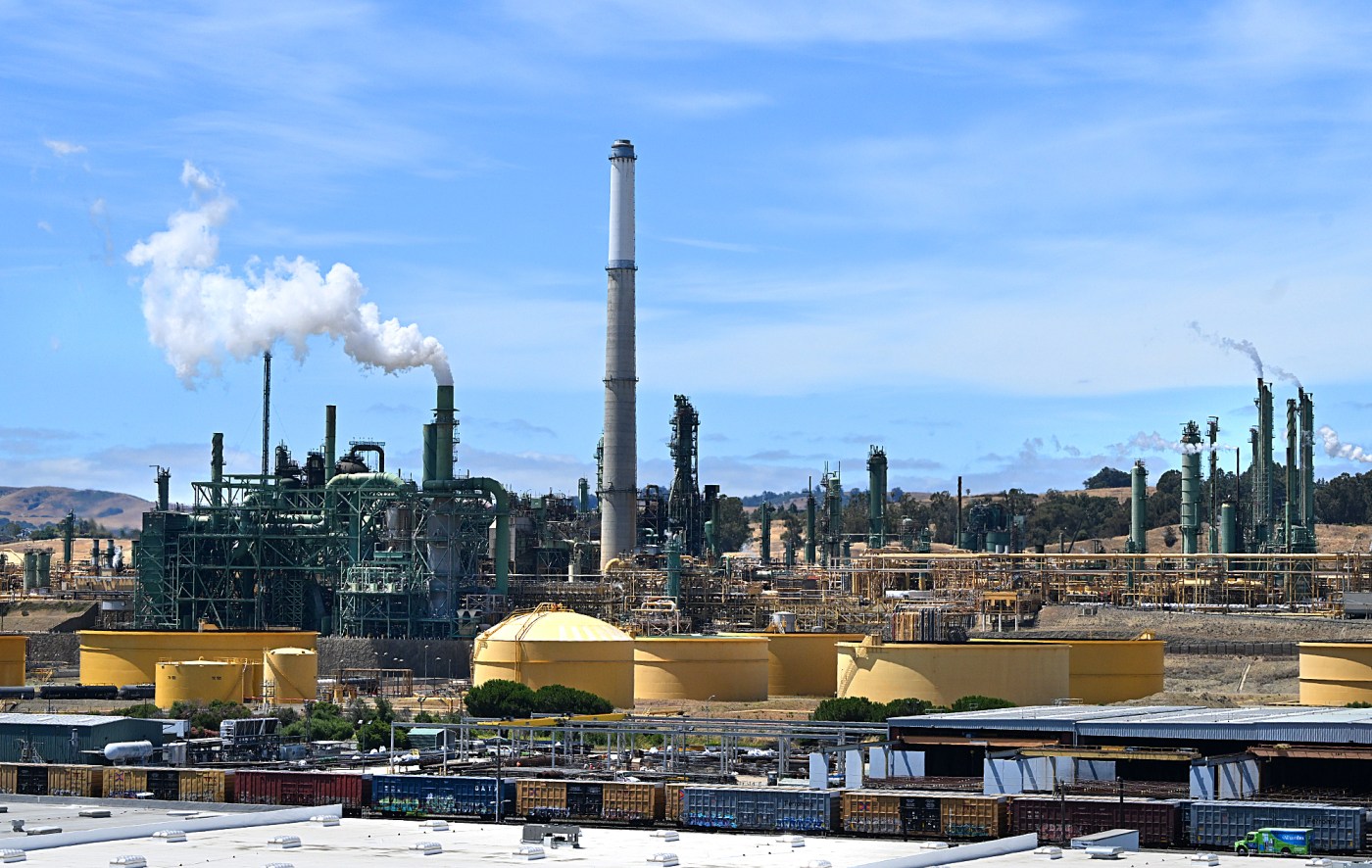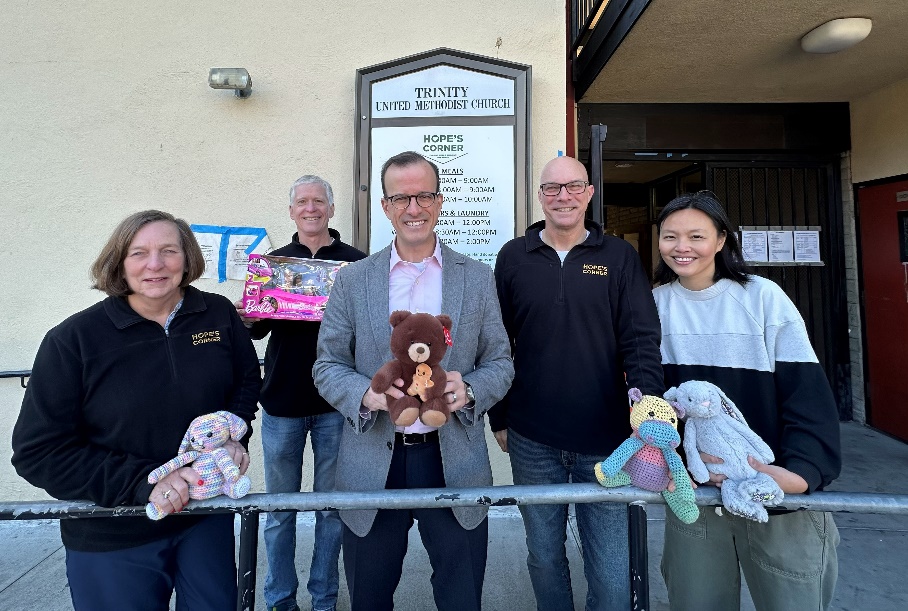
The saga of Benicia’s Valero Refinery may finally have an official end date.
Despite legislators working around the clock to reverse the decision, Benicia City Manager Mario Giuliani told the Times-Herald on Monday that, “Benicia can now proceed with the closure of the refinery in April or possibly sooner.”
Last April, Valero Energy Corporation’s subsidiary, Valero Refining Company-California, submitted notice to the California Energy Commission of its intent to idle, restructure, or cease refining operations at the Benicia Refinery by the end of next April.
“State officials have been working feverishly to explore other options since April, but it seems with no new news in the last few days, that the clear option that would make Valero stay didn’t work in their best interests,” Giuliani said. “Certainly as a city manager and longtime resident I’m disappointed that a solution wasn’t made. This is not only going to impact Benicia, but California as well. It’s frustrating, because the city was finally in a position to turn the corner.
“Now we’re going to have significant and seismic changes,” the city manager said.
Giuliani said that there is $60 million in the general fund budget and that it will now have to be reduced by $7.7 million by July. Despite the grim news, Giuliani tried to sound optimistic on Monday.
“It’s a problem we’re going to have to solve and it’s certainly difficult,” Giuliani said. “But while a difficult challenge, Benicia has been given the pen to be the author of the next chapters of the cities history.”
The news from Guiliani comes just two days after Assemblymember Lori D. Wilson (D-Suisun City) announced that Senate Bill 237, authored by state Sen. Tim Grayson, passed the California State Assembly with broad bipartisan support in a 63–4 vote and passed in the Senate in a 28–0 vote. That bill now heads to Gov. Gavin Newsom’s desk.
SB 237 responds to the state’s shifting energy landscape, where refinery closures, declining gasoline demand, and reliance on imports have left families, workers, and communities vulnerable.
“As the representative for Benicia, I know firsthand the impact refinery closures have on local economies, union workers, and small businesses,” said Wilson in a news release. “SB 237 is about managing change responsibly while protecting California families, workers, and communities. The closure of the Valero refinery means the loss of thousands of good-paying jobs and hundreds of millions of dollars in local economic activity.”
Valero Energy Corporation has owned and operated the Benicia Refinery since 2000. The refinery was originally built for Humble Oil, later called Exxon. Construction of the facility began in 1968 and was completed in 1969.
Valero Energy Corporation, through its subsidiaries (collectively, Valero), is a multinational manufacturer and marketer of petroleum-based and low-carbon liquid transportation fuels and petrochemical products, and sells its products primarily in the United States, Canada, the United Kingdom, Ireland and Latin America.
Valero owns 15 petroleum refineries located in the United States, Canada and the UK with a combined throughput capacity of approximately 3.2 million barrels per day.
Valero Headquarters in San Antonio, and has more than 9,900 employees, with approximately 400 at the Benicia venue. That refinery has a throughput capacity of 170,000 barrels per day, according to the company. According to a list from the California Energy Commission, Benicia has 8.94 percent of the state’s crude oil capacity.
“We understand the impact that this may have on our employees, business partners, and community, and will continue to work with them through this period,” said Lane Riggs, Chairman, CEO and President of Valero.
Meanwhile, Wilson’s legislation aims to strengthen safety standards for offshore oil and gas pipelines, directs state agencies to evaluate consumer protections at the pump, prohibits drilling permits in health protection zones, and takes steps to stabilize gasoline prices for California families.
SB 237 also directs the California Energy Commission, in consultation with the Air Resources Board, to explore temporary suspensions of the state’s summer gasoline blend if it would protect consumers from significant price increases. In addition, the Energy Commission is tasked with studying the potential for a western regional gasoline blend to stabilize markets and submitting recommendations to the Legislature on strategies for a safe, equitable, and affordable transition away from fossil fuels.
While Valero is a big part of Benicia business, is it not without its critics — particularly after the refinery became the site of a series of air pollution incidents. This includes a hydrogen vent at the refinery that had been leaking 2.7 tons of toxics into the air for 15 years. That discovery resulted in an historic $84 million fine imposed by the Bay Area Air Quality Management District (an oversight agency) in 2024.
Critics also point to inspectors reporting that Valero management had known about the leaks for years, but failed to report them or take steps to mitigate the leak. The fine reportedly was the largest penalty ever assessed by the district.
Valero was one of four other refineries that in 2023 didn’t meet requirements as defined by BAAQMD and Rule 12-15. That rule — passed in 2016 — requires refineries to monitor and report fugitive gasses from their operating equipment, such as valves, compressors, and storage tanks. These emissions impact the health of the surrounding communities — the toxic gases released include noxious chemicals like the cancer-causing benzene.
The Benicia City Council on April 2 voted 5-0 on a safety ordinance that aims to help protect Benicians against potential fires, explosions and toxic emissions connected to the Valero Refinery and other facilities causing health concerns in the city. Before the vote, Benicia was previously the only Bay Area refinery town to not yet have an Industrial Safety Ordinance.
However, the Benicia City Manager said that the Benicia City Council passing an Industrial Safety Ordinance 5-0 earlier in April was a separate entity and that the reasons for the possible departure had more economic and political reasons.
“There has been a sale in the works for some time with Valero, so I don’t believe the passage of the ordinance has anything to do with this,” Giuliani said in April. “San Antonio has highlighted some trust issues for some time, so to that extent this news isn’t shocking. When Valero announced a sale, we had heard rumors for some time … However, the news that they might be leaving entirely, that is shocking.”




